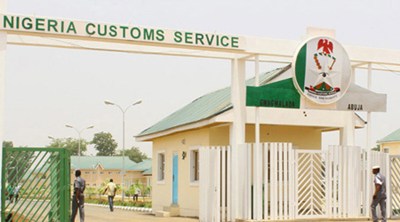How Marine Pollution Can Cause Ship Detention

Barr.(Mrs.)Oritsematosan Edodo-Thorpe is an international maritime lawyer, she serves in the board of the women’s International Shipping and Trading Association (WISTA), as an elected International Rector representing Africa for four years now. She is the Secretary General of the Franco-Nigeria Chamber of Commerce and Industry (FNCCI), a member of Nigerian Maritime Law Association (NMLA), and a member of Maritime Arbitrators Association of Nigeria (MAAN). In this interview with MMS Plus’ Ifeoma Oguamanam, she enlightens us on the issue of ship detention caused by pollution of the marine environment and the national and international sanctions applicable.
Excerpts:
What can be referred to as marine pollution?
Marine pollution is anything that is done that affects marine environment in a negative way, for instance, if there is oil poured on the river, if there is any leakage or waste from a vessel, the river becomes polluted and this means that aquatic life will be affected, people who fish will not be able to carry out their trade, the fish itself will not likely survive any poisonous thing deposited in the water and those families that depend on fishing for their livelihood is cut off immediately, also those communities that are dependent on fishing are directly affected and eventually the government of that area is affected. So marine pollution is any activity that can bring to an end the life in the marine environment either from the vessel or through the cargo the vessel is carrying and this can have devastating effect on aquatic life.
What conditions can lead to ship detention as regards pollution?
Every country has what is called port and flag state control, this means that they have to inspect the vessels that comes into their country to make sure they meet international standards as regards the hull and well being of the vessel, so if for instance , they inspect an old vessel that is likely to have bunker leakages, that makes it possible for oil to flow out of the vessel, those situations can lead to pollution and when that happens , the regulatory authority in charge of that state, like in Nigeria it is NIMASA, has the right to ask questions about the vessel and they have a right to detain a vessel until it satisfies whatever condition that they want it to be in .
Again, in the case of pollution from the cargo like waste or toxic cargo carried by a vessel, it comes with this cargo from somewhere and because regulations in developed countries are so strict they cannot dump the waste there so they look for other places in the poorer developing countries to do away with it, if they come to our waters and are found out, then those vessels can be detained and impounded until the situation is corrected.
Has the convention MLC 2006 that took effect from 20th August 2013 which states that Nigerian and international vessels risk being detained in other countries and their owners fined as the International Labour Organisation (ILO)begins enforcement been ratified in Nigeria and what are the implications?
In fact, The convention is in the process of being domesticated, that means it has to be made part of our domestic laws, the convention has to go through the National Assembly and they have to pass it into a law, the last I heard is that the counsel who was briefed to make an impute into the convention on the Nigerian side has made his impute and we have discussed it at the NMLA but as far as I know, it has not gone through the National Assembly, but once it become one of the Nigerian domestic laws, then we can now enforce it to the latter.
What are the relevant National legislations and regulations relating to pollution prevention in Nigeria?
We are part of the International Oil Pollution Compensation Funds Convention (IOPCFC), every oil producing country is a part of that convention and makes a report of the oil that goes in and out of its territory to the funds convention secretariat regularly. Nigeria ratified that convention and that means that if there is oil pollution in Nigeria for example, Nigeria is authorized to ask for compensation and the funds from the compensation is used for preventive purposes
That is, it takes adequate steps to see that the state enforces the convention laws that it has domesticated, it makes sure that the state educates its population as regards pollution and also the state takes steps to exercise the cleanup activities in case of oil pollution, the cleanup of the oil damage is also taken care of in the funds convention, so Nigeria is active in the IOPC funds convention that directly affects oil pollutions.
Who are the international relevant agencies that handle pollution and aside from NIMASA are there other agencies nationally?
In Nigeria the authority monitoring pollution of our waters is NIMASA, there is no other authority, NIMASA is in charge, also internationally there is the IOPC convention, and every country has their own regulatory authorities that look after pollution in their country but in Nigeria it is only NIMASA that is legally empowered through the Cabotage Act.
What about the navy?
The navy is more into security, when you talk about the regulatory body that has the authority, it is NIMASA and because NIMASA has the authority it will collaborate with the navy to enforce.
What is the implication of the restrictions on Nigerian vessels entering the Antarctica as regards pollution?
There is a lot of restrictions on the research in the Antarctica and because it is all ice and a protected part of the world where the world is still conducting research on the life there, it is subjected to very strict inspections and restrictions, the implication therefore, is that if Nigerian vessels want to be involved in the research in the Antarctic, they must meet all the international requirements concerning the standard of the vessels that are required there and that means that if our vessels are old they will not be allowed into the Antarctic and how that affects us is that we cannot take part in that research and if a vessel moves into that area without meeting the necessary requirements it will most likely be detained.
What is the legal framework of environmental protection and pollution control in the oil and gas sector in Nigeria?
The Petroleum Industry Bill (PIB), is under processing, it has not been passed and it is a bill that would have taken care of our industry, as regards pollution caused by crude oil or petrol products and protection of the environment.
I think that we need to have specific legislations dealing with this aspect but we are in a country that is called ‘development in process’, so right now we have not worked out all the legislations necessary to enforce pollution control caused by crude oil in the country, but NIMASA is doing a lot already, so we are working with what we have and I believe that the process of development is still ongoing.
Recently, an oil company named Mercury Oil Company sued the Nigerian Navy for N200m for detaining a vessel belonging to the company since February 2014, what does this imply for the shipping industry?
First of all, I think a salient point to note is that shipping is capital intensive, so when a ship is detained for one day, that means that it is not working, and in order for the ship to remain sea worthy, it incurs expenses because all the lights has to be on, the engine has to be working, if not the ship will run into decay.
So if a ship has been detained since February last year, that is a lot of loss for the ship owner, actually, detention or arrest of a ship is not something that a ship owner takes lightly because of the capital and financial loss that is associated with it, so it is not an issue to be toyed with, if a vessel has committed a breach of any regulation, of course, the relevant authorities have the power to detain it.
For example, the Cabotage Act gives NIMASA authority to detain vessels that do not comply with the conditions stipulated in the Act, until it complies, so if the Navy has detained a vessel, we want to know why it detained the vessel and whether it has the power to detain and under what power is it detaining the vessel.
If it is NIMASA doing the detaining, one can easily say may be the vessel did not comply with the Cabotage Act, we do not know why the vessel is being detained by the Navy and of course because his vessel has been detained for so long, the ship owner has taken the right steps and this shows confidence in the judicial system, confidence in the fact that conflicts in shipping can be resolved in the Nigerian courts and also confidence that the court is able to give him the chance to resolve the issue justly.
What are the legal charges and dues payable for ship detention?
If a ship is detained by NIMASA according to the provision in the Cabotage Act, if the detained vessel meets and satisfies all the conditions that NIMASA provides, the agency also has the right to impose a fine for that infraction and the Cabotage Act stipulates the fine already, so it is not as if people will be making imaginary payments, the fines are there stipulated by law.
The merchant ship act and other acts have provisions and regulations on pollution and under all of those as in the ports state control, NIMASA is the regulatory authority, so in terms of pollution the Shipping Act has provisions to deal with marine pollution from vessels and it is NIMASA that is the authority with the power to enforce those sanctions.
Is there any limit of days a ship can be detained?
No, the provision in the Cabotage Act is that the vessel is detained until it certifies the condition for its detention. For instance , if a fine is imposed and the vessels does not pay the fine it remains detained but as soon as it pays the fine imposed on it , it is entitled to be released immediately.







